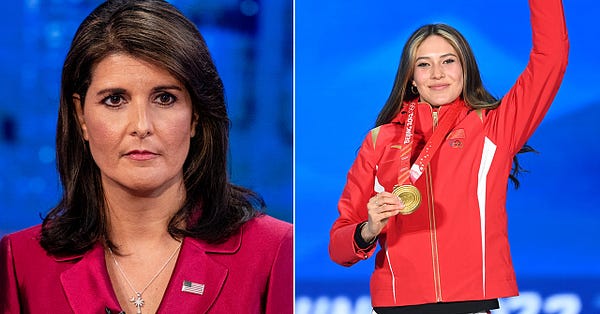The closing ceremonies at the Beijing Winter Olympics ended a two-week sporting spectacle at which nobody expected a good time. Global television ratings were significantly down, even if some athletic triumphs were had—in between the kind of stories that could only come from China.
All the tales of red tape


“It was weird. It was messy and, at the same time, somehow sterile,” reads the Associated Press postmortem on the 2022 Winter Olympics. “It was controlled and calibrated in ways only Xi Jinping’s China could pull off.”
China’s style showed up
It was in the final days of the Beijing Games that an Olympics official claimed there were no human rights violations against Uyghur Muslims, while also stating that Taiwan is part of China. The politicized detour was rebuked by the International Olympic Committee.
The snow nobody wanted
While significant snowfall during a winter sporting event may sound like a thing of beauty, Beijing banked on events entirely dependent on fake white stuff—resulting in temporary chaos on the manufactured ski slopes. The resources required for human-made snow was criticized as a dangerous trend, but Chinese state media celebrated it.
The controversial champ


Eileen Gu became the first action sports star to take home three medals at a single Olympics, which further raised the lucrative profile of the American born-and-raised 18-year-old member of Team China. With that came more scrutiny for her allegiances, most notably from the former U.S. ambassador to the United Nations.
Still playing this game

The unusual emergence of Peng Shuai during the Olympics included the tennis star walking back her sexual assault accusation involving a government official, under what appeared to be worrying coercion in the mirror. Her story took on a new strange layer when a diplomat told the Australian version of 60 Minutes that she was too “tall and strong” to be assaulted.
Propaganda out of time
A set of rock drawings that depict human figures using objects that look similar to skis were originally reported found in 2005, in Xinjiang province. While not carbon dated, China drew new attention to them during the opening ceremony, to dispute the European origin of the sport—and promote the infamous region as a post-Olympics tourist attraction.
The China Letter is produced by the Canadian Freedom Institute, a think tank based in Canada. We produce the China Letter every week to keep you informed and to press the ideas of free markets and free people not only in China but around the world. Please consider donating to keep this newsletter running!









